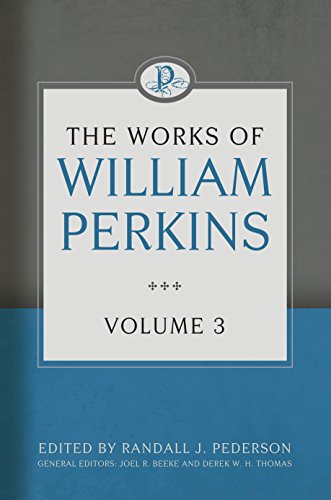The Works of William Perkins, Volume 3
 Author(s): William Perkins
Author(s): William PerkinsPublisher: Reformation Heritage Books
Price: $2.99 (Sept 7-8)
The Works of William Perkins fills a major gap in Reformed and Puritan theology. Though Perkins is best known today for his writings on predestination, he also wrote prolifically on many subjects. His works filled over two thousand large pages of small print in three folio volumes and were reprinted several times in the decades after his death. His complete works, however, have not been in print since the mid-seventeenth century. This modern typeset edition of the Works includes four volumes of Perkins’s expositions of Scripture, three volumes of his doctrinal and polemical treatises, and three volumes of his practical writings.
This third volume contains Perkins’s A Cloud of Faithful Witnesses, Leading to the Heavenly Canaan, which was his exposition of Hebrews 11. In it, Perkin contends that the whole chapter of Hebrews 11 is meant to urge readers to persevere in faith by persuading them of the excellence of faith. In his characteristic way, Perkins brings the abiding importance of this message through careful exegesis and perceptive application.
In an age of cheap faith and easy believism, Perkins offers us a way to put our faith to the test, to try it against the faith of the “great cloud of witnesses” of Hebrews 11, and, in the end, to put it into practice, assured that God’s mercy will uphold us for life. It is hoped that the publishing of this work will again serve the church not only by offering a glimpse into the fascinating exegetical world of a Cambridge pastor but also by showing how doctrine is first and foremost for life.
